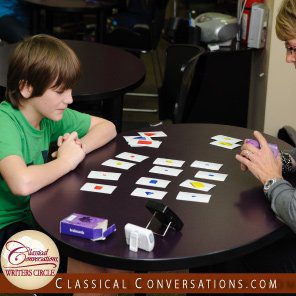In our society, we often think of skills as a set of “expert” techniques that we apply to particular activities. We classify ourselves, among other things, as “skilled” doctors, electricians, musicians, basketball players, teachers, cooks, or decorators. We tend to believe we must be intensely “schooled” in specific content in order to acquire the necessary unique, activity-related skills related to those subjects. We are wrong.
Well, we are not utterly wrong, perhaps, but we are mostly wrong. Specific activity-related skills do need to be acquired when we turn to highly specialized pursuits and professions (after all, we would all probably prefer a highly trained surgeon over a novice when we are scheduled for an operation), but only after we have already mastered important fundamental skills: learning skills.
What exactly are learning skills? When presented with this question we are likely to feel overwhelmed. Why? Because in our detail-saturated, rapidly paced, systems-heavy culture we anticipate that the answer to this question must be very complicated. Indeed, it can be extremely complex. As with anything, the farther you gaze and the harder you seek, the more diversity you are likely to find. Yet on the other hand, the deeper you delve the more likely you are to find, not complexity, but a magnificent simplicity—perhaps not in phenomena, but in principles. For example, the intricacy of the created world is stunning, and yet behind it all lies mathematical principles that are remarkable in the way they apply to so many different situations, mechanisms, and creatures in orderly ways. One need only to think of the remarkable Fibonacci Sequence (watch this neat three part video series) to realize that the complexity and diversity of so many factors of our universe is beautifully expressed by a single, rather starkly simple, series of numbers.
It is no different with learning skills. Behind all the varied manifestations of these skills as they present themselves in different subjects, professions, and activities lies, not a multitude, but rather just a handful of fundamentals that form the bedrock.
In fact, I think that these skills can essentially be distilled into three broad realms. Within those realms, many variations may indeed exist, but, in general, all learning skills can probably be expressed in terms of the classical Trivium: the three stages and components of learning. That is, through the grammar, dialectic, and rhetoric.
Here is one way to look at how I think it works:
|
STAGES/COMPONENTS of the Trivium |
LEARNING SKILLS of the Trivium |
FRUITS of the Trivium |
| Grammar | Rock-solid Retention:
Thorough memorization of information |
Knowledge |
| Dialectic | Rigorous Exploration:
Lively inquiry through good questioning |
Understanding |
| Rhetoric | Right Decision:
Active expression of true, beautiful, and good conclusions |
Wisdom |
All the Classical Conversations programs, from Foundations through Challenge IV, are designed to model the primary skills of each stage for home educating families to then put into practice in their home schools. Every program touches on all three skills (memorization, exploration, and decision). But the progression also follows the passage of students through the natural, organic stages of learning contained within the growth of a child to adulthood. As a result, the main emphasis in the elementary ages is on the skill of memorization, the primary emphasis in the middle school years is the skill of exploration, and the general focus in high school progresses increasingly heavily towards the skill of decision-making.
The ultimate goal is to equip students with mastery in these fundamental, bedrock skills so that they will be able to lead with knowledge, understanding, and wisdom. While students master the content of the subjects studied at home in their home schools, in the Classical Conversations programs once a week they have the opportunity to practice, exercise, and master the skills of learning.
This may seem simplistic and yet it is here, in this nutshell expression of the skills of learning, that the greatest kernel of truth resides: if we effectively teach our students to master these three skills—rock-solid memorization, rigorous exploration, and right decision—they will have mastered the ability to conquer any subject. What is more, they will be equipped to effectively act in love towards their neighbors, witness to their neighbors, and lead their neighbors well.




